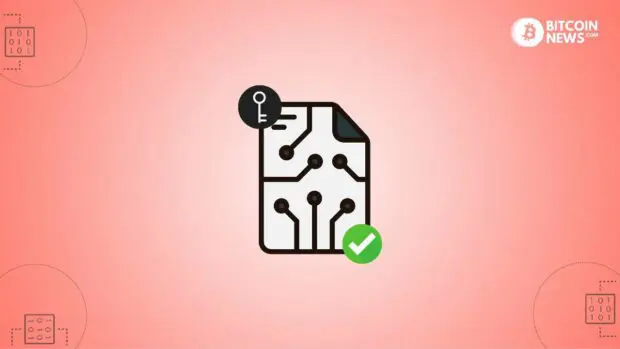Table of Contents
Nick Szabo defines smart contracts as “a set of promises, specified in digital form, including protocols within which the parties perform on these promises.” In a 1996 paper Szabo argued that smart contracts have the potential to revolutionize digital markets by making it possible to automate the execution of contracts and reduce the need for trust between parties.
In this article, smart contracts are explained, alongside their mechanism and their use cases. Then Bitcoin smart contracts are discussed.
Related reading: Building On Bitcoin: An Overview Of RSK Rootstock Smart Contracts
The Interdisciplinary Nature of Smart Contracts
The development of smart contracts is not confined to a single field. Instead, it is the product of an interdisciplinary approach, drawing insights from economics, cryptography, computer science, and legal theory. This convergence has created a powerful tool that transcends traditional boundaries, highlighting the importance of collaborative innovation.
A Leap Forward For How Human Trades
Smart contracts represent a leap forward in digitizing legal and financial transactions. They are self-executing agreements where the contractual terms are encoded as computer code. Once predefined conditions are met, the smart contract automatically executes the corresponding contractual clauses.
This concept is groundbreaking in several regards. First, it enables complete automation of contractual execution, ensuring actions happen quickly, reliably, and without human intervention. Second, by reducing counterparty risk, smart contracts create trust between unfamiliar parties. Finally, by encoding complex agreements as software, smart contracts enable innovative forms of digital commerce and finance not previously feasible.
Cryptography: The Backbone of Smart Contracts
Without cryptography, smart contracts as we know them could not exist. Cryptography plays an indispensable role in the development of smart contracts by providing the security and trust mechanisms necessary for their digital execution.
Specifically, cryptography enables essential functions like encryption to secure data, digital signatures to authenticate identities, and hashing to protect integrity. These cryptographic primitives allow parties to digitally agree upon and execute contracts, with confidence that transactions are confidential, binding, and tamper-proof. If contractual terms could be easily read by third parties, or if identities could be spoofed, or contract executions modified, smart contracts would fail to provide the reliability and trust needed for adoption.
The Economic Implications of Smart Contracts
Economically, smart contracts hold the potential to streamline processes and reduce transaction costs significantly. By automating contract enforcement and execution, they minimize the need for intermediaries, thereby reducing fees and time delays associated with traditional contract processes. This efficiency can revolutionize various industries, making transactions faster, cheaper, and more reliable.
Legal Considerations and Challenges
While smart contracts offer numerous benefits, they also present legal challenges. The immutability and automation of smart contracts may lead to complications in situations that require contractual flexibility or human judgment. Legal frameworks need to adapt to address issues related to the enforcement and interpretation of these digital contracts.
Bitcoin Smart Contracts

Bitcoin, at its core, is a revolutionary monetary system, distinct in its decentralization and security. While it’s primarily known for its role as a digital currency, Bitcoin also possesses capabilities for smart contracts, though these differ from what you might find in altcoins.
In Bitcoin, smart contracts are agreements that are encoded into the blockchain, enforced by the network’s protocol. These contracts are not as complex as those on platforms designed explicitly for such functionality, but they offer notable advantages. Key aspects of Bitcoin’s approach to smart contracts include:
- Simplicity and Security: Bitcoin’s scripting language is intentionally limited and less flexible than those of other blockchains. This simplicity minimizes the attack surface and security risks, making the contracts more secure.
- Multi-signature Transactions: One of the most common uses of smart contracts in Bitcoin is multi-signature transactions. These require multiple private keys to authorize a transaction, enhancing security for funds storage and transactions.
- Time Locks: Bitcoin allows the creation of time-locked transactions, which only become valid after a certain period. This can be used for various purposes like delayed payment, trustless escrow, and more.
- Payment Channels and the Lightning Network: The Lightning Network, a layer built on top of Bitcoin, enables instant, low-cost transactions. It uses smart contract functionality to create a network of payment channels for efficient microtransactions.
- Discreet Log Contracts (DLCs): As a recent development in Bitcoin’s smart contract ecosystem, DLCs enable more complex conditional transactions based on external data, bringing closer the concept of decentralized finance (DeFi) on Bitcoin.
Bitcoin’s approach to smart contracts emphasizes security and reliability over flexibility. While it might not support the vast array of applications possible on more versatile platforms, it provides a solid foundation for secure and efficient financial contracts.
Future Directions and Innovations
The future of smart contracts is promising, with potential applications extending beyond finance to areas like real estate, healthcare, and governance. As technology continues to evolve, so too will the capabilities of smart contracts, potentially leading to more complex and sophisticated applications that further integrate the physical and digital worlds.
Smart contracts are prime examples of how multidisciplinary collaboration can lead to groundbreaking innovations. The synergy between economics, cryptography, and computer science has created a tool that could transform how we engage in legal and financial transactions. As these fields continue to evolve, the potential for smart contracts to revolutionize various sectors of society remains vast and largely untapped.
FAQ
u003cstrongu003eWhat is Nick Szabo’s definition of smart contracts?u003c/strongu003e
Nick Szabo defines smart contracts as u0022a set of promises, specified in digital form, including protocols within which the parties perform on these promises.u0022
u003cstrongu003eWhat is the nature of smart contract development?u003c/strongu003e
Smart contract development is interdisciplinary, drawing insights from economics, cryptography, computer science, and legal theory.
Why are u003cstrongu003esmart contracts important in the digital finance space?u003c/strongu003e
Smart contracts are self-executing agreements encoded as computer code, enabling complete automation of contractual execution, reducing counterparty risk, and facilitating innovative digital commerce.
u003cstrongu003eWhat role does cryptography play in smart contracts?u003c/strongu003e
Cryptography is essential for smart contracts, providing security and trust mechanisms necessary for digital execution, including encryption, digital signatures, and hashing.
u003cstrongu003eDo smart contracts impact transaction costs?u003c/strongu003e
Smart contracts have the potential to significantly reduce transaction costs by automating contract enforcement, minimizing the need for intermediaries, and streamlining processes.
Du003cstrongu003eo smart contracts present u003cstrongu003elegal challenges?u003c/strongu003eu003c/strongu003e
Smart contracts pose legal challenges due to their immutability and automation, requiring adaptation in legal frameworks to address issues related to enforcement and interpretation.
u003cstrongu003eHow is Bitcoin different in its approach to smart contracts than other platform?u003c/strongu003e
Bitcoin’s smart contracts are simpler and more focused on security, emphasizing multi-signature transactions, time locks, and features like the Lightning Network for efficient microtransactions.
u003cstrongu003eWhat are some key aspects of Bitcoin’s smart contract approach?u003c/strongu003e
Bitcoin’s smart contract approach includes simplicity and security, multi-signature transactions, time locks, and innovations like Discreet Log Contracts (DLCs).
Are u003cstrongu003eBitcoin smart contracts more secure than other platforms?u003c/strongu003e
Bitcoin intentionally limits its scripting language to reduce security risks, emphasizing security and reliability over flexibility in smart contracts.
u003cstrongu003eWhat is the potential future direction of smart contracts?u003c/strongu003e
The future of smart contracts is promising, with potential applications expanding beyond finance to areas like real estate, healthcare, and governance, driven by ongoing technological evolution and innovation.










